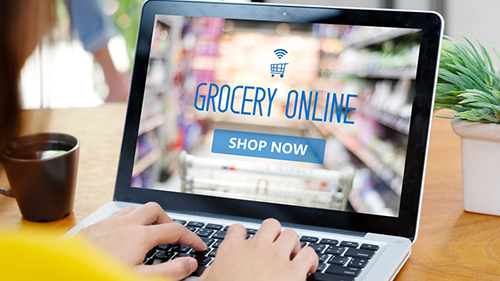
Millennials and Conscious Consumers
Unsurprisingly, private label-loving Millennials are in the vanguard of those shoppers interested in purchasing such items online.
“Millennials are … the generation driving the growth we have seen in ecommerce,” observes Alex Smith, business analyst at Wilton, Conn.-based Cadent Consulting Group. “Thus, there is great opportunity for private label online with this growth-driving generation.”
Abby Ayers, senior business development manager of retail at Oakland, Calif.-based Fair Trade USA, which collaborates with retailers on private label Fair Trade Certified products, agrees, noting that “ecommerce is really turning to unique and well-defined private brands to build loyalty and engage with the Millennial and Gen Z consumer.”
Somewhat echoing McElwee’s comments, but with a particular application to organizations such as her own, Ayers continues: “The growth of ecommerce platforms allows consumers to get even more information on products that traditionally wouldn’t fit on packaging, such as who made the products, where they came from, what their values are. Retailers can take advantage of the conscious-consumer trend by leveraging the demand and awareness of certification as a means to build trial, gain new consumers and build loyalty. By working with sustainability certifications like Fair Trade USA, these ecommerce channels are building brand guard rails and product assortments that defend their triple bottom lines: protecting people and planet, and making a profit. In doing so, they are connecting with the conscious consumer and building a consumer base that trusts and believes in their private brand.”
Beyond the ability “to demonstrate transparency and the product’s path from production to cart,” she points out the design and content possibilities: “There is so much opportunity online to provide amazing visuals and clarity around all of these topics.”
Smith in particular thinks that private label’s online ubiquity is just a matter of time, observing that “the ecommerce titan, Amazon, owns an impressive 100-plus private brands across multiple categories, and as we have seen, where Amazon goes, brick and mortar will likely follow.”
Mastering the Fundamentals
For some, however, the ecommerce opportunity isn’t all that different from the in-store opportunity.
Noting the importance of stressing quality over low price and the development of innovative, creative products, Brian Sharoff, president of the New York-based Private Label Manufacturers Association, asserts, “The purchasing process may change and delivery options may change, but the rules of store-brand success are fundamental.”
Meanwhile, Retail Business Services, a company of Carlisle, Pa.-based Ahold Delhaize USA, has implemented a set of best practices encompassing the entire private-brand process that guides its approach to everything, including the digital world. “In terms of ecommerce, the consideration set doesn’t change, it just becomes a matter of how to translate these best practices for online,” explains Juan De Paoli, Retail Business Services’ SVP, private brands.
As it does that, however, Retail Business Services will seek the assistance of Ahold Delhaize USA’s Peapod Digital Labs, the ecommerce engine for the grocer’s U.S. portfolio. “In the private-brand organization, we’ll be working closely with the Peapod Digital Labs’ omnichannel initiatives to support the private-brand experience and journey,” says De Paoli.
What it’s all about, of course, is making sure that consumers get the items they want as quickly and painlessly as possible, while retailers rack up return website visits and higher sales.
“Private brands in ecommerce are ways to both differentiate and drive loyalty,” observes Doug Baker, VP, private brands and technology at Arlington, Va.-based Food Marketing Institute. “As consumers are looking for more convenient ways to shop, they still want to get the brands they trust.”

